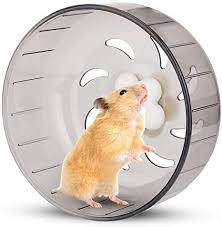Overview
 Taking time out and slowing down is a statement of the obvious, right? We know these things are good for us. But what if the world we live in is getting faster, ever changing and we are rushing constantly to keep up? What if we struggle some days to feel in control of what’s happening, and it all happens so quickly and another day is over before we know it?
Taking time out and slowing down is a statement of the obvious, right? We know these things are good for us. But what if the world we live in is getting faster, ever changing and we are rushing constantly to keep up? What if we struggle some days to feel in control of what’s happening, and it all happens so quickly and another day is over before we know it?
This article came to me recently (another whilst on the spinning bike!) particularly reflecting on some of the senior coaching clients I work with who have been busier at work than ever despite working from home and not having a commute; some are starting work at 6am, a short walk from the bedroom to the spare room or the dining room to start work, a quick sandwich grab at lunch and finishing sometimes at 6-7pm- often essentially a 12-hour day. Part of my coaching work is challenging them to find ways of working that work for them, that can sustain ongoing health and wellbeing through things like regular time out.
As ever with the articles I write, I’m not trying to be a paragon of virtue here but observing human nature in both myself and others. I also recognise that in career terms I am at a different place than some of the people I work with, not working long hours, but hopefully there are maybe a few small gems in here that might just get you to sit back, take time out and reflect on what you could do differently as well as commend what you do right. I have made a small nod to the wonderful confectionary that is time out, though not a bar I see in the shops any more… (tagline for chocolate aficionadas: the wafer break with a layer of Flake)
Daily Time out
How much space do you set aside in the working day to refresh, get up and walk about, switch off?
 I discovered a simple desk top tool called “Coffee break” which I have downloaded that stops me with a big sign on my computer every 45 minutes, suggesting I step away for 5 minutes and take a break! You can set it to whatever time period you like, but one of the better work management apps out there I would suggest.
I discovered a simple desk top tool called “Coffee break” which I have downloaded that stops me with a big sign on my computer every 45 minutes, suggesting I step away for 5 minutes and take a break! You can set it to whatever time period you like, but one of the better work management apps out there I would suggest.
Perhaps another element of pacing yourself and staying mindful during the working day is to get the day off to a good start and do a few minutes active mindfulness. Evidence suggests that as little as 10 minutes per day can have a beneficial effect. It’s not only the immediate effect of peace and stillness, but I find it helps me take breaks during the day if I have practised mindfulness first thing in the morning.
What about later in the day, say mid-afternoon onwards when snacks appear more and more tempting (or maybe that’s just me)? It’s worth remembering the law of diminishing returns when you are tempted to push on through and finish off that report that you started and there is a deadline on… in psychology (though originally used in economics) according to the law of diminishing returns, the value or enjoyment we get from something starts to decrease after a certain point. … the law of diminishing returns also applies to performance where when we squeeze to get that extra thing done when we are tired, its either not great work or we don’t finish.
This brings us into the territory of prioritising and time management. There are some people that we come across though, who seem to manage well, with a sense of calm, and not at the mercy of rushed agendas, and last-minute crises. The key question for us all is how much can we do about this? How much of it is the organisation or system in which we operate, and how much can we as individuals have a say? (some people argue that the whole wave of resilience training helps get organisations off the hook with respect to looking after people instead of them taking responsibility) Can we slow things down in order to get what we need to get done, or at least buy ourselves time for some prioritising of what needs to happen? Some people I come across feel trapped within the team and wider organisation they are working in, and sense they have little freedom to flex. However stressed the team is though, perhaps we can all improve our own time management through better planning, prioritising, delegating, controlling our environment (rather than always the other way around), understanding ourselves and identifying what we will change about our habits, routines and attitude.
Weekend Time out
Google is wonderful at coming up with background information on pretty much anything you can think of; on the idea of the weekend, it says that the present-day concept of the “weekend” first arose in the industrial north of Britain in the early 19th century. The Amalgamated Clothing Workers of America union was the first to successfully demand a five-day work week in 1929 to create another day in addition to the Sunday sabbath. In effect, it took the industrial revolution, faith and workers’ rights to make the modern sense of the weekend happen.
 Ever since the 1960s, there has been talk of the weekend being extended to make it almost as long as the working week. Three- or four-day weeks have been a dream for many who believe advances in technology make it possible for people to complete their required work in a shorter time. A firm in New Zealand tested the theory by reducing the working week to four days but still paying staff the wages for five with some success. It feels to me though that the whole question of a 4-day week is still pie in the sky, a bit like the annual debate of whether to put the clocks back; nice to talk about but way off in reality. The pandemic has raised the question again, so will be interesting to see if there are any real changes to our working week.
Ever since the 1960s, there has been talk of the weekend being extended to make it almost as long as the working week. Three- or four-day weeks have been a dream for many who believe advances in technology make it possible for people to complete their required work in a shorter time. A firm in New Zealand tested the theory by reducing the working week to four days but still paying staff the wages for five with some success. It feels to me though that the whole question of a 4-day week is still pie in the sky, a bit like the annual debate of whether to put the clocks back; nice to talk about but way off in reality. The pandemic has raised the question again, so will be interesting to see if there are any real changes to our working week.
So, enough of the history lesson, what does a weekend look like for you? For some its getting out there and playing sport, socialising with friends, seeing family, shopping (which some say is the modern religion). For me, I have come to see the weekend as a mini break like a short holiday; I love what I do, but do get to Friday nights and love the anticipation of two days of not doing a lot, relaxing, being unstructured and seeing where the day will take me: it’s no longer cramming it full of activities, but more about taking time out to walk in nature, read a book, potter around the house; even though from time I can still hear my Dad’s voice telling me to “get out and make something of the day”.
I guess what I’m saying is that it’s at least worthy of reflection to think about how you spend your weekends and whether you come back into work on a Monday bright eyed and bushy tailed or at least well rested or whether it’s a real effort to get back into the reality of Monday morning not feeling revived.
Periodic Time out
This usually looks like holidays. It’s interesting that though there is a European approach to holidays, the approach in the USA is very different. Wikipedia helpfully sets out a table with all the countries around the world and the length of statutory holidays.
 The United States is one of the meanest in holiday entitlement: there is no federal or state statutory minimum paid vacation or paid public holidays. Paid leave is at the discretion of the employers to its employees. Even though 77% of private employers offer paid vacation to their employees; full-time employees earn on average 10 vacation days.
The United States is one of the meanest in holiday entitlement: there is no federal or state statutory minimum paid vacation or paid public holidays. Paid leave is at the discretion of the employers to its employees. Even though 77% of private employers offer paid vacation to their employees; full-time employees earn on average 10 vacation days.
I have always loved the idea of the Australian system on long term leave which I heard about when I lived there. In Australia, long service leave is an employee entitlement to an additional vacation on full pay after an extended period of service with an employer. A common entitlement is that employees who remain with the one employer for ten years are entitled to three calendar months paid leave. Some travellers I met in Australia talked about how much the longer break they took revived them, and gave them the energy to go back in and fall in love again with the work they do.
A cursory glance through this indicates that for most countries its typically somewhere between 20 and 30 days- effectively between 4 and 6 weeks.
I know a couple of clients who I have worked with who religiously take a holiday every 6-8 weeks as a “sanity break” whether that’s staying put at home or getting away on holiday. For me, it’s vital not just taking a break and being somewhere different (economics and pandemic allowing) but the distance we need from our day-to-day work to really reflect on how it’s all going for us; what’s working and why, what isn’t and why, and things we might do differently when we go back to work; a kind of re-set.
Another good trick I have seen with a couple of clients is booking time off during the working week with themselves; perhaps an hour a week to step back from the hurly burly, to reflect maybe through writing; often this is the same time each week which could be for example a Monday morning or a Friday afternoon to reflect on the previous week and plan how to have the best week ahead possible.
Epilogue
 Ultimately, this is iterative I know, but I find sometimes with my coaching clients and in my own world, I get caught on a fast gerbil wheel, and it’s hard to get off. At its best our work provides us with purpose and meaning as well as economic return, but it allows us time to be complete people with a good life in and outside of work.
Ultimately, this is iterative I know, but I find sometimes with my coaching clients and in my own world, I get caught on a fast gerbil wheel, and it’s hard to get off. At its best our work provides us with purpose and meaning as well as economic return, but it allows us time to be complete people with a good life in and outside of work.
Less a new years resolution, and more a chance at the beginning of the year to reflect on what you want the year to look like for you. There is a TIME OUT EXERCISE that can help you take stock of your working day, your working week and periodic breaks away